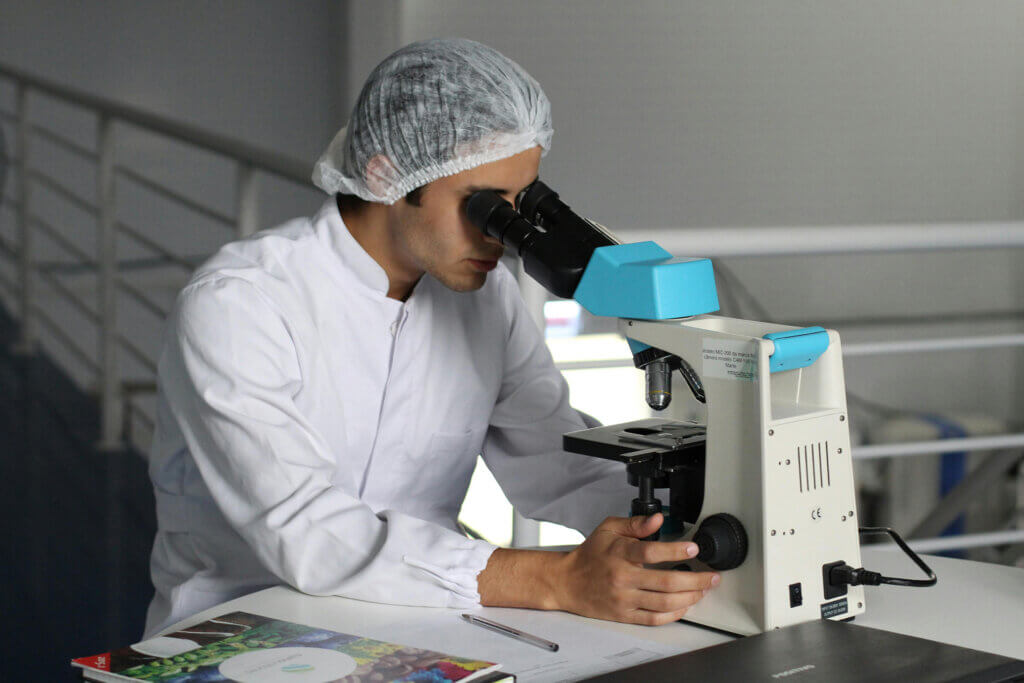Approximately 80% of women have some type of hormone imbalance, and many have accepted this as a fact of life.
However, just because it’s common, doesn’t mean it’s normal. Hormone imbalances may be a sign of an underlying endocrine syndrome, like polycystic ovary syndrome (PCOS), which affects fertility, metabolic health, and overall well-being.
PCOS is extremely underdiagnosed, and when it is diagnosed, it’s usually with short-term solutions that hide symptoms without targeting the root cause. It’s not surprising that many women feel frustrated and misunderstood with this conventional approach.
Functional medicine uses a different solution for this misunderstood syndrome; providers emphasize lab testing, individual care, and natural hormone balancing solutions that last a lifetime and improve fertility outcomes. Although there’s no cure for PCOS, women with PCOS can still have natural pregnancies and live healthy lives with a root-cause approach.
In this blog, we’ll discuss what PCOS is, PCOS symptoms, and what to expect when you go through PCOS treatment.
This blog is for educational purposes only, it should not be used as treatment or taken as medical advice. Please consult a medical provider if you think you have PCOS.
What is PCOS?
Polycystic Ovary Syndrome, aka PCOS, is a genetic, hormone, metabolic and reproductive disorder affecting 6-12% of women in the US. Although the syndrome is notable for causing ovarian cysts and irregular periods, PCOS is much more complex.
Women with PCOS struggle with inflammation, insulin resistance, and excess production of androgen. This syndrome comes with risk factors like hypertension, type 2 diabetes, sleep apnea, thyroid dysfunction, and infertility.
Why do we have a PCOS Awareness Month?
September is PCOS awareness month!
Although the CDC reports that 6-12% of US women have PCOS, medical institutions predict that up to 75% of cases are misdiagnosed or underdiagnosed. This discrepancy is likely due to the range of symptoms, lack of research, and no “one” determining diagnostic test.
Women experiencing PCOS—whether diagnosed or not—often report feeling misunderstood, in-the-dark, and confused about their syndrome. Research is still continuing to figure out why PCOS happens and how to treat it effectively. It’s important for us to raise awareness to help women get the healthcare and answers they deserve.
What are the Symptoms of PCOS?
Symptoms of PCOS vary from person to person, but common symptoms include:
- Missed/irregular/light periods
- Large ovaries
- Ovarian cysts
- Extra body hair on chest, stomach, back
- Belly weight gain
- Acne or oily skin
- Thinning hair or male pattern baldness
- Infertility
- Skin Tags
- Dark or thick skin patch
- Anxiety
- Depression
- Premenstrual Dysphoric Disorder (PMDD)
How is PCOS Diagnosed?
There is no “one” PCOS diagnostic test. Instead, providers may use a combination of a physical exam, blood tests, and pelvic ultrasound to determine a PCOS diagnosis.
Conventional PCOS Treatment
PCOS continues to be studied in the medical world, so conventional treatment may not produce long-term results. Many conventional treatments mask symptoms without targeting the root-cause of the syndrome.
Hormonal Birth Control
Since PCOS is a hormone imbalance that affects the menstrual cycle, skin, hair, and more, many conventional providers will treat PCOS with hormonal birth control. This method artificially balances hormones to decrease symptoms like acne, irregular periods, and heavy bleeding.
However, hormonal birth control is NOT a long-term solution for PCOS. This does not target the root-cause or naturally balance hormones. Additionally, not every woman wants birth control because of the desire to get pregnant or other personal reasons.
Other Medication
Providers may prescribe androgen-blockers or type 2 diabetes medications (such as Metformin). Androgen-blockers slow down symptoms like hair thinning, hair growth, and acne. Medications like Metformin help insulin processing and may improve hormonal imbalances.
These medications are for women who are not currently trying to get pregnant.
Functional Medicine Approach to PCOS
PCOS varies from women-to-women, and the individuality of the syndrome aligns with the individualized approach of functional medicine.
Functional medicine providers utilize lab testing and lifestyle changes to treat PCOS long-term. Lifestyle changes include diet, exercise, supplements, and stress management; lab testing pinpoints problem areas and tracks progress.
Lab Testing
Lab testing gives insight to how your body is experiencing the syndrome. Your provider may test hormone levels, thyroid function, insulin, metabolic health, or nutrient levels.
With the information from the lab, the provider can make treatment decisions that benefit your individual needs and track your progress by comparing results over time.
Dietary Adjustments
Dietary adjustments support long-term regulation of blood sugar, balancing hormones, and improving your metabolic health. It’s likely that your provider will recommend a nutrient rich diet full of antioxidants, omega-3 fatty acids, and anti-inflammatory foods.
Exercise
Exercise is an effective solution for PCOS symptoms and mental health. Research shows that aerobic and resistance training makes a significant quality of life improvement for women with PCOS.
It also decreases the risk of type 2 diabetes, insulin resistance, and obesity. As for mental health, exercise increases endorphins that alleviate anxiety and depression.
Supplements & Herbs
Many women with PCOS primarily have insulin resistance, which results in high adrogen levels. A functional medicine provider may recommend inositol or berberine to improve insulin sensitivity and manage PCOS symptoms better.
Hormonal balancing and anti-inflammatory herbs or supplements also may be recommended by your provider to manage PCOS. Examples include ashwagandha, holy basil, and Omega-3.
Stress Management
Whether stress is due to symptoms or a separate cause, stress is a major barrier for treating PCOS. The cortisol released by the body contributes to poor gut health and overall inflammation.
Functional providers may recommend talk therapy, EMDR, meditation, breathing exercises, and contrast therapy for stress release.
Holistic Therapy with PCOS
Holistic therapy is an additional approach to conventional or functional treatment that may improve mental health or manage symptoms like acne, excess hair growth, and hair thinning.
Acupuncture
Acupuncture is a traditional Chinese medicine practice to support wellness and improve overall mental and physical well-being. Acupuncturists use small needles to activate the energy in the body, called qi. Studies have shown that acupuncture improves mental health, especially for women with PCOS.
Red Light Therapy
Red light therapy is an integrative therapy that supports PCOS symptoms and well-being. Red light therapy increases cell regeneration, which can improve acne, hair loss, and skin conditions related to PCOS. It also is effective for stimulating endorphin release and decreasing neuroinflammation.
Laser Hair Removal
Women with PCOS do not need to remove body hair. However, if excess body hair is taking a toll on your well-being, then laser hair removal may be an appropriate option. Laser hair removal is a tool to slow down the hair growth and potentially prevent further growth.
Support for PCOS at Alive and Well
At Alive and Well, we have many support options for PCOS including:
- Providers with expert knowledge about PCOS
- Functional Medicine Packages
- Optimal Health Membership
- In-House Lab Testing
- Hormone Harmony
- Integrative Therapies
Alive and Well Providers with PCOS Expertise
Dr. Dina Pavilonis, MD, FAAMFM
Functional Medicine Packages
We have two functional medicine packages available, and your first evaluation will determine your best fit. Once you select your package, you will have access to monthly provider visits, nutritionist visits, and additional wellness discounts. Learn More.
Optimal Health Membership
This year-long membership provides the opportunity to work with one of our highly qualified Functional and Integrative Medical Professionals as well as one of our Certified Health Coaches to achieve your individual health goals. Learn More.
In-House Lab Testing
We have many panels and labs for you to choose from such as thyroid, nutrient levels, metabolic health, and hormone levels. Learn More.
Hormone Harmony
Hormone Harmony provides you with comprehensive lab work and review by our accredited functional medicine practitioner. Plus, you’ll get four weeks of educational content to help you better understand your hormone health! Learn More.
Holistic Therapies
At Alive and Well, we offer many holistic therapies at our Dallas and Austin locations.
DALLAS
AUSTIN









